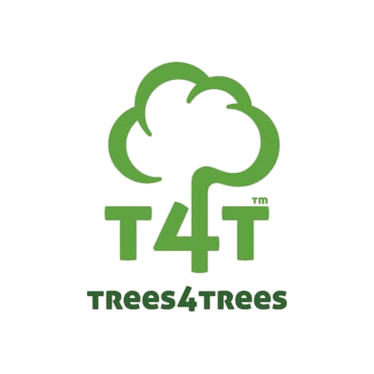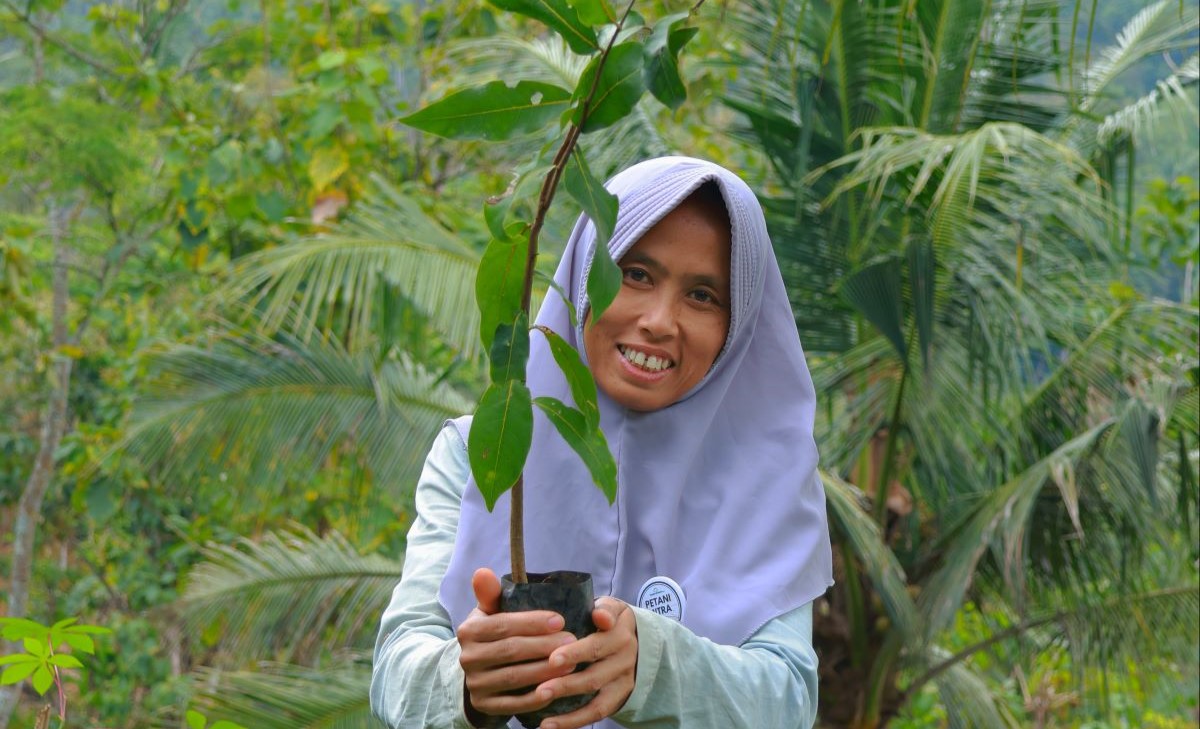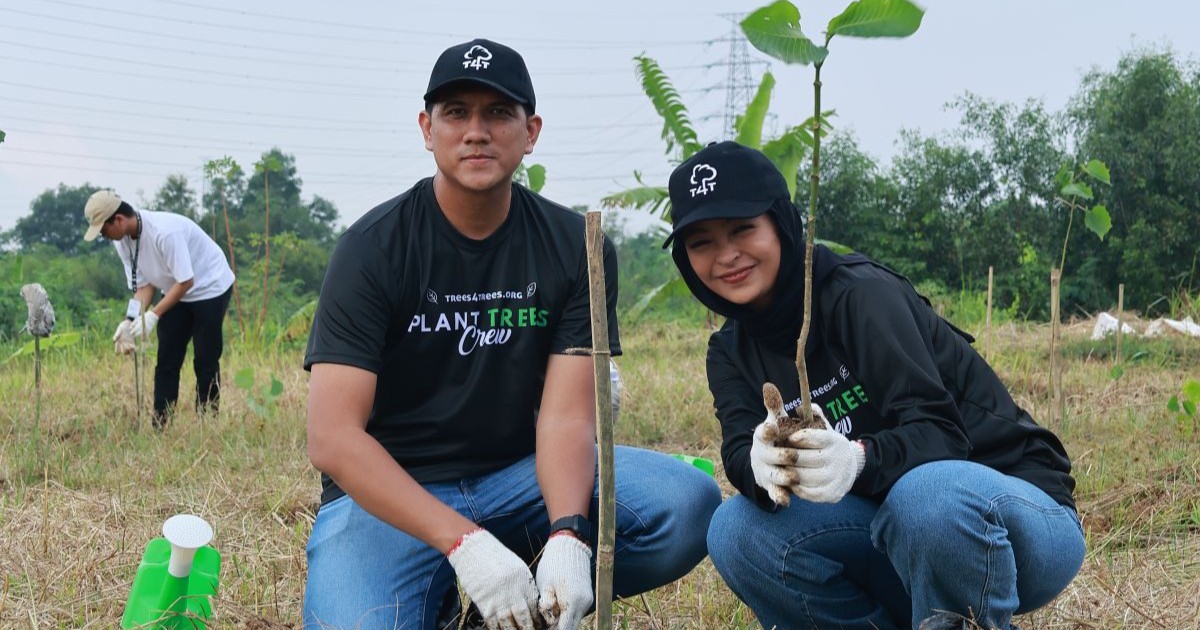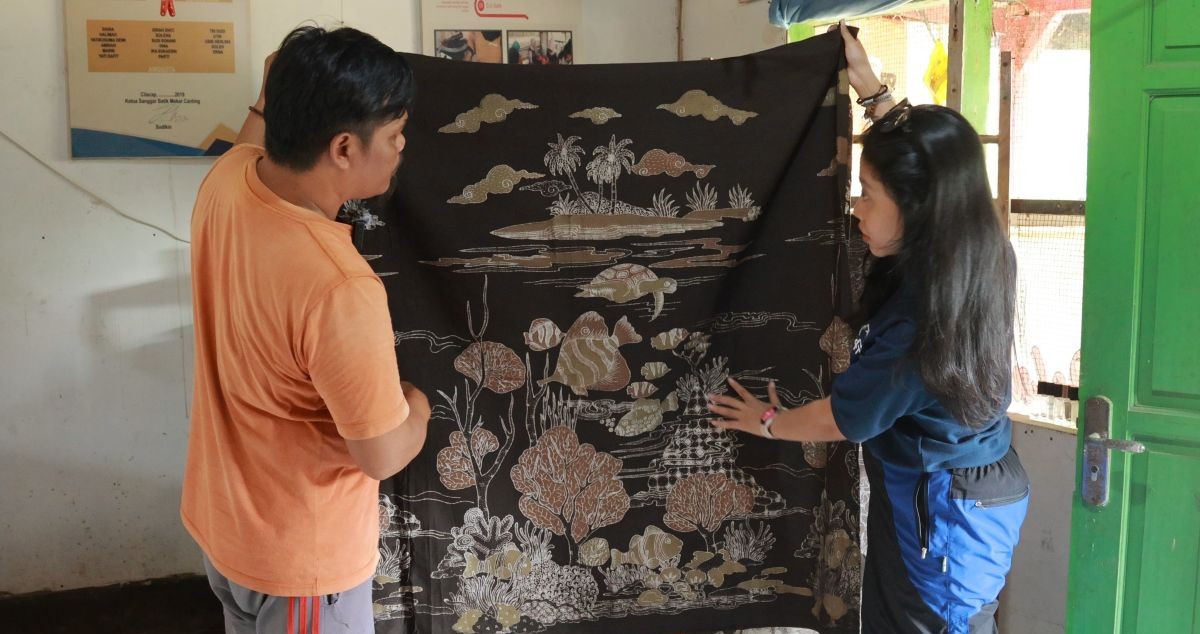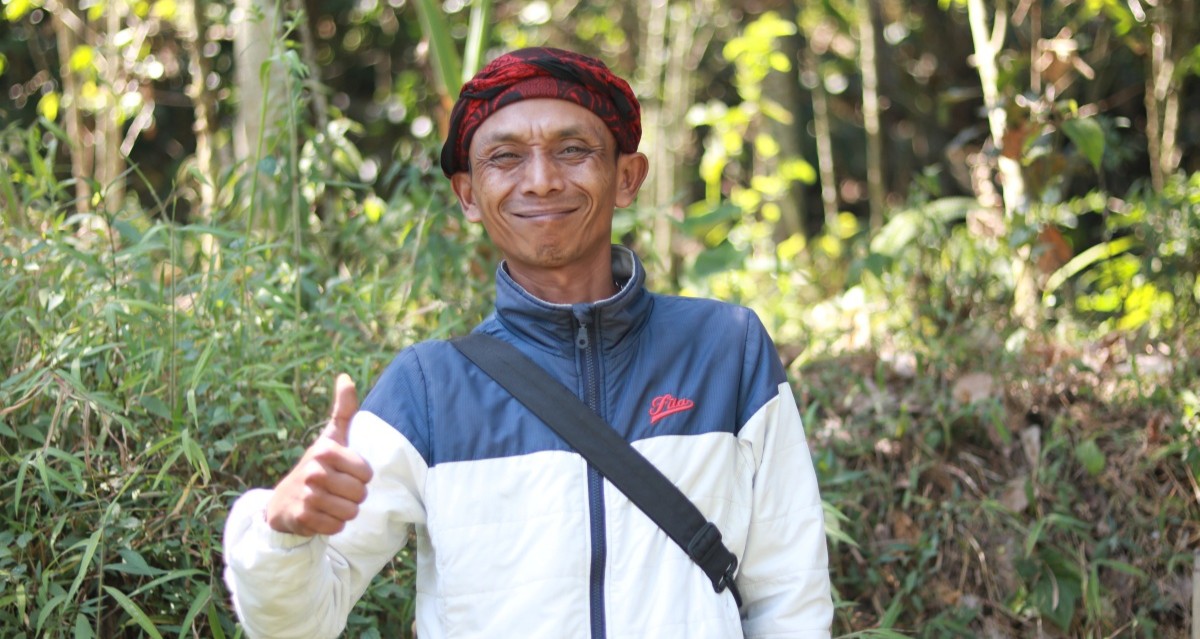
In Indonesia, social convention often dictates that a women’s place is in the home. But Ratiyem doesn’t care about convention. This 46-year-old farmer from Gunungsari Village in Kebumen, Central Java believes women have a right to work and follow their dreams. During her life, she has taken a long, hard road to independence.
Nothing ever came easy for Ratiyem. Trapped in a cycle of poverty from an early age, her education was cut short when her family couldn’t pay the school fees. Ever since then, she’s been working hard to make ends meet. As a teenager, she took a job as a housemaid in Semarang, 170 kilometers away from her home and family.
She worked hard in the big city for more than 10 years, but always felt like it wasn’t where she was meant to be. “I liked working in Semarang, because I could make a living,” explains Ratiyem. “But if I kept working there, there would be no-one to take care of my kids and my husband. I knew I had to return to my village,” she added.
A woman’s work is never done
After returning to her village, Ratiyem was determined to provide for her children with the education she never had. Together with her husband, she put her time, her heart and soul into working the soil.
“I had a field measuring about 500 sqm and thought I could make some money by planting cassava and taro, as they’re always in high demand,” she explains. “My happiest moment as a farmer came when harvesting that first crop and the price was good. It made all the effort worthwhile.”
Ratiyem balances her work as a farmer with her role as a mother and member of her community. “Early in the morning, after taking care of breakfast and getting the kids ready for school, I walk around the village to collect grass for my cattle. Then, I tend to my field and nurture the growing plants.”

Growing stronger through the tree-planting program
In 2022, Ratiyem was contacted by Trees4Trees, who invited her to become a grower for a tree-planting program in collaboration with Hong Kong – based TREE Ltd. Through this program, she received free seedlings and organic fertilizer, and was able to develop her farming skills with access to new knowledge.
“I received 200 trees, including sengon, suren, and coffee,” remembers Ratiyem, who believes her own personal development will soon be reflected in the growth of her crops and the increased income it brings. “Being part of this program has provided me with a wealth of new farming knowledge through training, especially organic farming methods. This knowledge has made a big difference, as it guides farmers like me in managing our fields more effectively,” she added.

The importance of independence
Ratiyem takes great pleasure in being close to nature, living off the land she was born in. “Unlike the big city, where I had to buy all my food, here my fields provide me with everything I need,” she says, before adding that in her role as farmer she also has a responsibility to support food security.
Through the Trees4Trees program, Ratiyem hopes to provide food for her community and earn extra income to support her family. Looking to the future, she wants to put more food on more tables, by starting up a catering business with ingredients sourced directly from her field.

“I want to continue working and being productive,” she explains. “To me, it’s vital for women to work and generate income, so we don’t just rely on men to meet daily expenses. As working women, we can play a role in supporting the family financially,” she added.
For Ratiyem and the many women farmers like her, independence means more than just following your own path. It is about overcoming obstacles, leading by example, and doing whatever it takes to provide for those who rely on you. With support from Trees4Trees, inspirational women like Ratiyem will continue to be a source of pride to their families and leaders in their communities.
